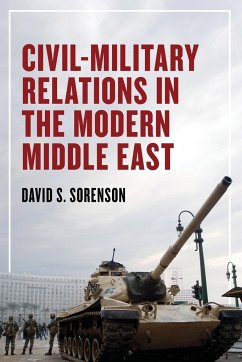
Civil-Military Relations in Israel
Essays in Honor of Stuart A. Cohen
Herausgeber: Rosman-Stollman, Elisheva; Kampinsky, Aharon
Versandkostenfrei!
Versandfertig in 1-2 Wochen
122,99 €
inkl. MwSt.
Weitere Ausgaben:

PAYBACK Punkte
61 °P sammeln!
This book brings together prominent scholars from different disciplines in the field of civil-military relations in both Israel and abroad, and provides rare access in English to quality scholarship in this area.














